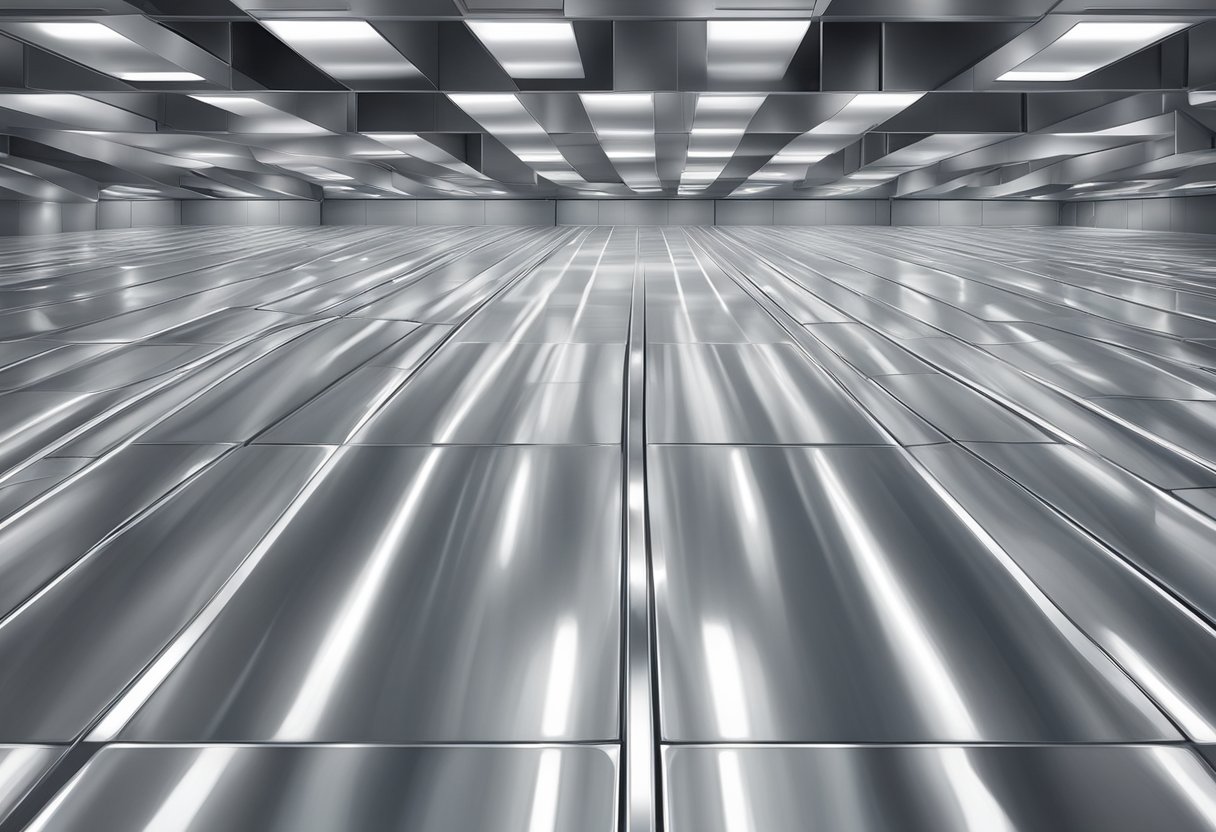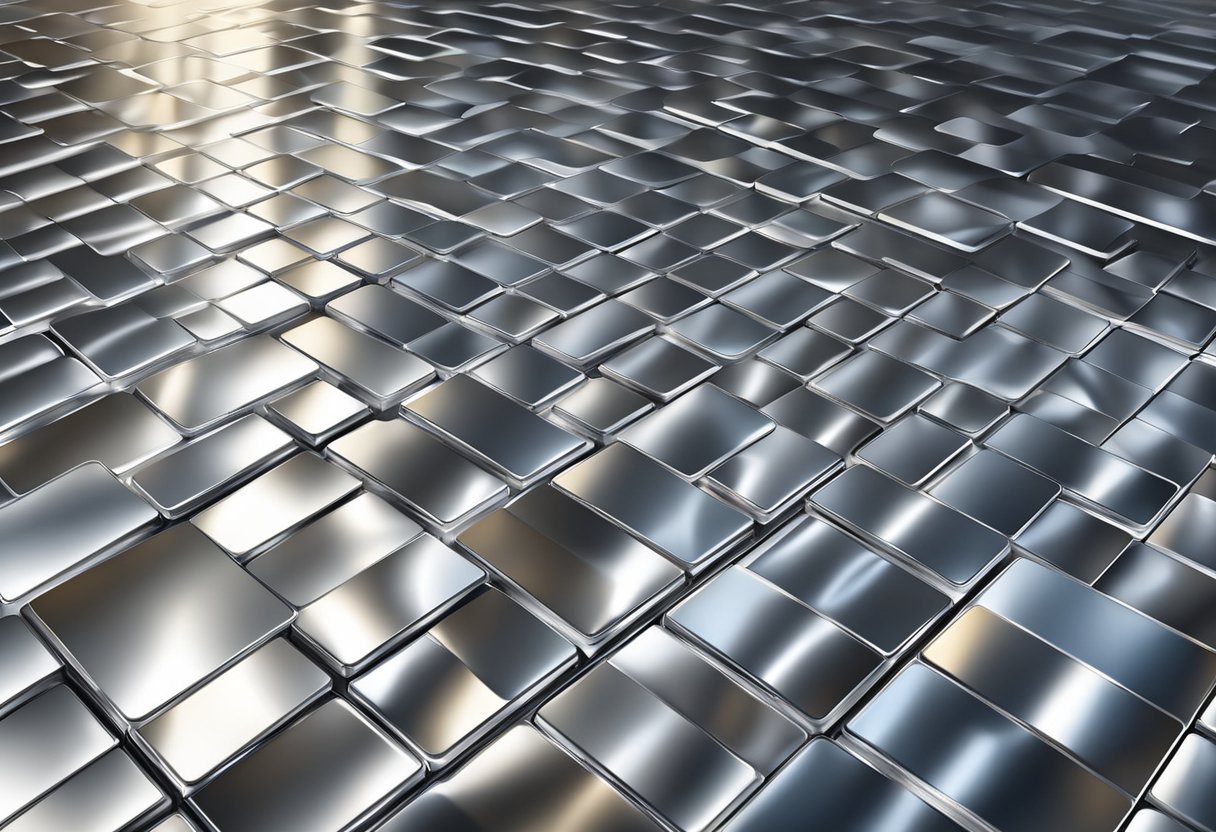Aluminum floor panels are a popular choice for industrial and commercial flooring applications due to their durability, strength, and lightweight nature. These panels are made from high-quality aluminum alloys that provide excellent resistance to corrosion, impact, and wear and tear. They are commonly used in environments where heavy loads, high traffic, and harsh chemicals are present, such as factories, warehouses, airports, and hospitals.

Aluminum floor panels are available in a variety of sizes, thicknesses, and surface finishes to meet different requirements. They can be customized to fit specific dimensions and shapes, and can be coated with anti-slip or anti-static materials to enhance safety and performance. Moreover, aluminum floor panels are easy to install, maintain, and replace, which makes them a cost-effective solution for flooring needs. With their numerous benefits and versatility, aluminum panels are a reliable and practical choice for any facility that requires a durable and long-lasting flooring system.
Properties of Aluminum for Flooring

Durability
Aluminum is a highly durable material that can withstand heavy loads and high traffic. It has a high strength-to-weight ratio, making it resistant to bending and warping. Aluminum floor panels are able to withstand the impact of heavy machinery and equipment, making it an ideal choice for industrial and commercial flooring applications.
Weight
Aluminum is a lightweight material, which makes it easy to handle and install. It is significantly lighter than other materials such as steel or concrete, making it an ideal choice for applications where weight is a concern. This also makes it easier to transport and install, reducing installation time and costs.
Corrosion Resistance
Aluminum is highly resistant to corrosion, making it an ideal choice for flooring applications in wet and humid environments. It does not rust or corrode like other metals, ensuring that the floor panels maintain their strength and durability over time. Additionally, aluminum can be treated with coatings or finishes to enhance its corrosion resistance even further.
In summary, aluminum is an excellent choice for flooring applications due to its durability, lightweight, and corrosion resistance properties. These characteristics make it an ideal material for a wide range of industrial and commercial flooring applications.
Design and Manufacturing
Extrusion Process
Aluminum floor panels are manufactured using an extrusion process. This process involves pushing the aluminum alloy through a die to create a specific shape. The extrusion process allows for the creation of complex shapes and designs, making it ideal for manufacturing floor panels with unique features.
During the extrusion process, the aluminum alloy is heated to a specific temperature to make it more malleable. The heated alloy is then forced through a die, which shapes the aluminum into the desired profile. Once the extrusion is complete, the aluminum is cooled and cut to the required length.
Panel Design Considerations
When designing aluminum floor panels, several factors must be considered. The design must meet the required load-bearing capacity, be durable, and provide a non-slip surface. The panel’s thickness, shape, and size must be carefully considered to ensure that it meets the required specifications.
Aluminum floor panels can be designed with various surface finishes, including smooth, textured, or perforated. The surface finish affects the panel’s slip resistance, and it is essential to choose the right finish for the intended application.
The manufacturing process for aluminum floor panels involves cutting the extruded aluminum to the required length and adding any necessary finishes. The panels can be cut to custom lengths, making them suitable for a wide range of applications.
Overall, the design and manufacturing of aluminum floor panels require careful consideration of several factors to ensure that the final product meets the required specifications and is suitable for the intended application.
Installation of Aluminum Floor Panels
Preparation and Tools
Before installing aluminum floor panels, it is important to prepare the subfloor properly. The subfloor should be clean, dry, and level. Any debris or dust should be removed from the subfloor to ensure a proper installation.
In addition, it is important to have the right tools for the job. Some of the tools required for the installation of aluminum floor panels include a circular saw, drill, screws, and a measuring tape. It is also recommended to use safety equipment such as gloves and eye protection.
Installation Procedure
To install aluminum floor panels, start by measuring the area where the panels will be installed. Once the measurements are taken, cut the panels to the appropriate size using a circular saw.
Next, begin laying the panels starting from one corner of the room. Use screws to secure the panels to the subfloor. It is important to ensure that the panels are tightly secured to prevent any movement or shifting.
As the installation progresses, be sure to check that the panels are level and adjust as necessary. Once all the panels are installed, add any necessary trim pieces to complete the installation.
Overall, the installation of aluminum floor panels is a straightforward process that can be completed with the right tools and preparation. By following the proper procedures and ensuring that the panels are securely installed, the end result will be a durable and attractive flooring option.
Applications of Aluminum Floor Panels
Transportation Industry
Aluminum floor panels are widely used in the transportation industry due to their lightweight and durable nature. They are commonly used in the construction of aircraft, trains, buses, and other vehicles. Aluminum floor panels provide strength and stability to the structure of the vehicle while also reducing the overall weight, which leads to improved fuel efficiency.
Moreover, aluminum floor panels are resistant to corrosion and fire, making them a safe and reliable choice for the transportation industry. These panels are also easy to clean and maintain, which is essential for transportation vehicles that require frequent cleaning.
Architectural Uses
Aluminum floor panels are also used in various architectural applications. They are commonly used in commercial buildings, hospitals, and schools due to their durability and aesthetic appeal. Aluminum floor panels can be customized to fit any design or color scheme, making them a versatile choice for architects and designers.
In addition, aluminum floor panels are resistant to wear and tear, making them ideal for high-traffic areas. They are also easy to install and maintain, which is essential for buildings that require frequent cleaning and maintenance.
Overall, aluminum floor panels are an excellent choice for transportation and architectural applications due to their lightweight, durable, and versatile nature. They provide strength and stability to the structure while also enhancing the overall aesthetic appeal.
Maintenance and Care
Cleaning Methods
Aluminum floor panels are durable and easy to maintain, but they do require regular cleaning to keep them looking their best. It is recommended to clean the panels at least once a week to remove any dirt or debris that may have accumulated.
To clean aluminum floor panels, a mild detergent and warm water can be used. Avoid using harsh chemicals or abrasive materials, as they can scratch or damage the surface of the panels. A soft-bristled brush or sponge can be used to gently scrub the surface, and then rinsed with clean water.
For tougher stains or marks, a mixture of baking soda and water can be applied to the affected area and left to sit for a few minutes before scrubbing and rinsing.
Long-Term Maintenance
In addition to regular cleaning, there are a few things that can be done to ensure the long-term maintenance of aluminum floor panels.
Firstly, it is important to avoid exposing the panels to extreme temperatures or moisture, as this can cause warping or damage. Secondly, it is recommended to place protective mats or pads under heavy furniture or equipment to prevent scratches or dents.
Finally, it is important to inspect the panels periodically for any signs of damage or wear and tear. If any issues are found, it is recommended to address them promptly to prevent further damage.
By following these simple maintenance and care guidelines, aluminum floor panels can remain in top condition for years to come.



